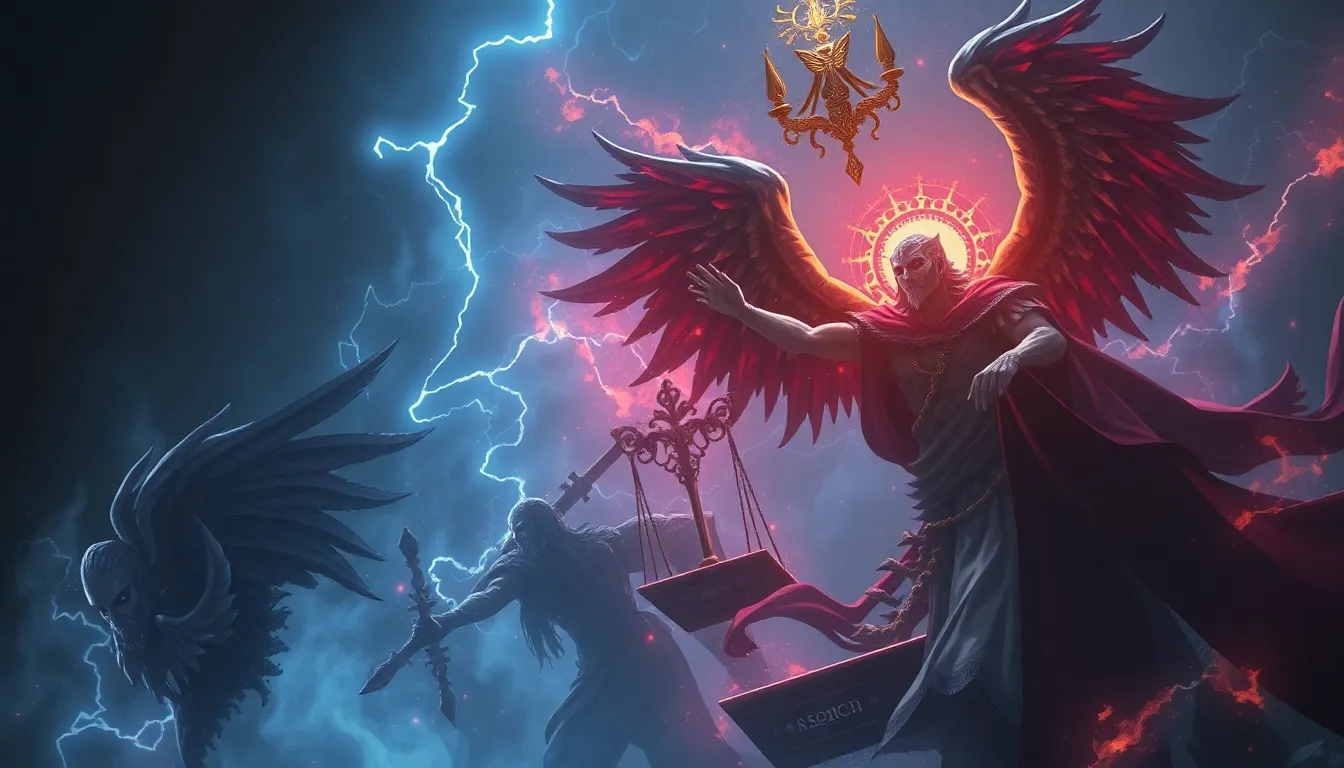When the Divine Demands Justice: Shocking Tales of Retribution
Introduction: The Concept of Divine Justice
Divine justice refers to the belief that a higher power enforces moral order in the universe, ensuring that good is rewarded and evil is punished. This concept is prevalent in various cultures and religions, from the ancient beliefs of Mesopotamia to contemporary spiritual practices. In spiritual narratives, themes of retribution are woven deeply into the fabric of morality, offering insights into human behavior and societal norms.
Studying tales of divine retribution helps us understand the moral compass of different societies, revealing how they interpret justice and punishment. These narratives not only shape individual beliefs but also influence communal values, leading to a collective understanding of right and wrong.
Historical Context: Divine Justice in Ancient Civilizations
In ancient civilizations, divine justice was often personified through gods and goddesses who acted as enforcers of moral order. In Mesopotamian culture, the Code of Hammurabi was believed to be divinely inspired, presenting justice as an extension of the will of the gods. Similarly, Egyptian beliefs included the weighing of the heart, where Osiris judged the deceased based on their earthly deeds.
Greco-Roman mythology also held significant examples of divine retribution. The tales of Nemesis, the goddess of retribution, illustrate how the gods punished hubris and moral transgressions. Notable case studies include:
- The Fall of Troy: The city’s destruction was seen as punishment for Paris’s abduction of Helen.
- Sodom and Gomorrah: Their annihilation was attributed to the inhabitants’ wickedness, a clear message of divine disapproval.
The Role of Mythology: Stories of Retribution Across Cultures
Mythology serves as a powerful tool for conveying moral lessons through stories of retribution. Across various cultures, these tales reflect the values and beliefs of the societies that tell them. In Hinduism, for instance, the story of Ravana’s defeat by Rama illustrates the triumph of good over evil and the consequences of moral transgressions.
Christianity offers the parable of the Good Samaritan, juxtaposing the fate of the unkind with the merciful, highlighting the moral implications of one’s actions. Indigenous religions often include narratives where the earth itself enacts retribution on those who disrespect nature.
The psychological impact of these tales is significant, as they shape societal norms and expectations, reinforcing the belief that justice is ultimately served.
Modern Interpretations of Divine Retribution
In contemporary society, views on divine justice have evolved, yet the underlying themes remain. Many still perceive natural disasters, pandemics, and societal upheavals as manifestations of divine retribution. The influence of religion on modern legal systems and ethics continues to be profound, often blurring the lines between secular and sacred justice.
Case studies of modern events, such as:
- The 9/11 attacks, often interpreted as a divine punishment for perceived moral failings.
- The COVID-19 pandemic, with some viewing it as a reckoning for humanity’s disregard for nature.
These interpretations reflect a complex relationship between faith and societal events, illustrating how ancient beliefs persist in modern times.
Shocking Tales from History: Documented Instances of Retribution
Throughout history, numerous events have been interpreted as instances of divine punishment. Natural disasters like earthquakes and floods have often been viewed as signs of divine displeasure. The Great Flood narrative found in various cultures, including the Biblical account of Noah, serves as a prime example of this belief.
Societal collapses, such as the fall of the Roman Empire, are frequently analyzed through the lens of divine retribution, with historians and theologians alike debating the moral failings that may have led to such catastrophes.
Personal narratives and testimonies also support the belief in divine justice, with individuals recounting life experiences that they interpret as consequences of moral behavior.
The Moral Dilemma: Is Divine Retribution Justified?
The ethical implications of divine justice provoke substantial debate. Proponents argue that divine retribution serves as a necessary tool for maintaining moral order and accountability. They contend that it reinforces societal norms and encourages ethical behavior.
Conversely, critics argue that the concept of divine retribution can lead to fatalism, where individuals may feel helpless in the face of suffering. Theological discussions often explore the complexities of free will and predestination, examining whether divine punishment is justified or merely a human construct.
Perspectives from theologians, philosophers, and ethicists enrich this discourse, providing varied insights into the morality of divine justice.
Literary Representations: Divine Justice in Fiction and Film
Divine retribution has long been a compelling theme in literature and cinema, serving as a vehicle for exploring moral dilemmas. Notable works include:
- The Divine Comedy by Dante Alighieri, which vividly depicts divine punishment in the afterlife.
- Macbeth by William Shakespeare, illustrating the consequences of ambition and moral failings.
- The Green Mile by Stephen King, which examines themes of justice and the supernatural.
These narratives impact public perception of morality and justice, often prompting discussions about the nature of right and wrong.
Psychological Aspects: The Need for Justice in Human Nature
Humans have an innate desire for justice, and stories of divine retribution resonate deeply within us. Cognitive dissonance plays a role in our belief in divine justice, as individuals reconcile personal experiences with larger moral frameworks. Psychological studies have linked belief in divine justice to social behavior, suggesting that such beliefs foster a sense of community and shared values.
Understanding these psychological aspects can illuminate why tales of divine retribution continue to captivate and influence human behavior across cultures and eras.
Case Studies: Modern-Day Acts of God as Retribution
In contemporary society, various events are often perceived as divine punishment, leading to discussions about morality and justice. Examples include:
- The aftermath of Hurricane Katrina, where some viewed the disaster as a consequence of societal failings.
- The 2010 Haiti earthquake, interpreted by some as divine retribution for the nation’s historical injustices.
Public perception of these events illustrates the enduring belief in divine justice, prompting individuals to reflect on their moral choices and societal values.




